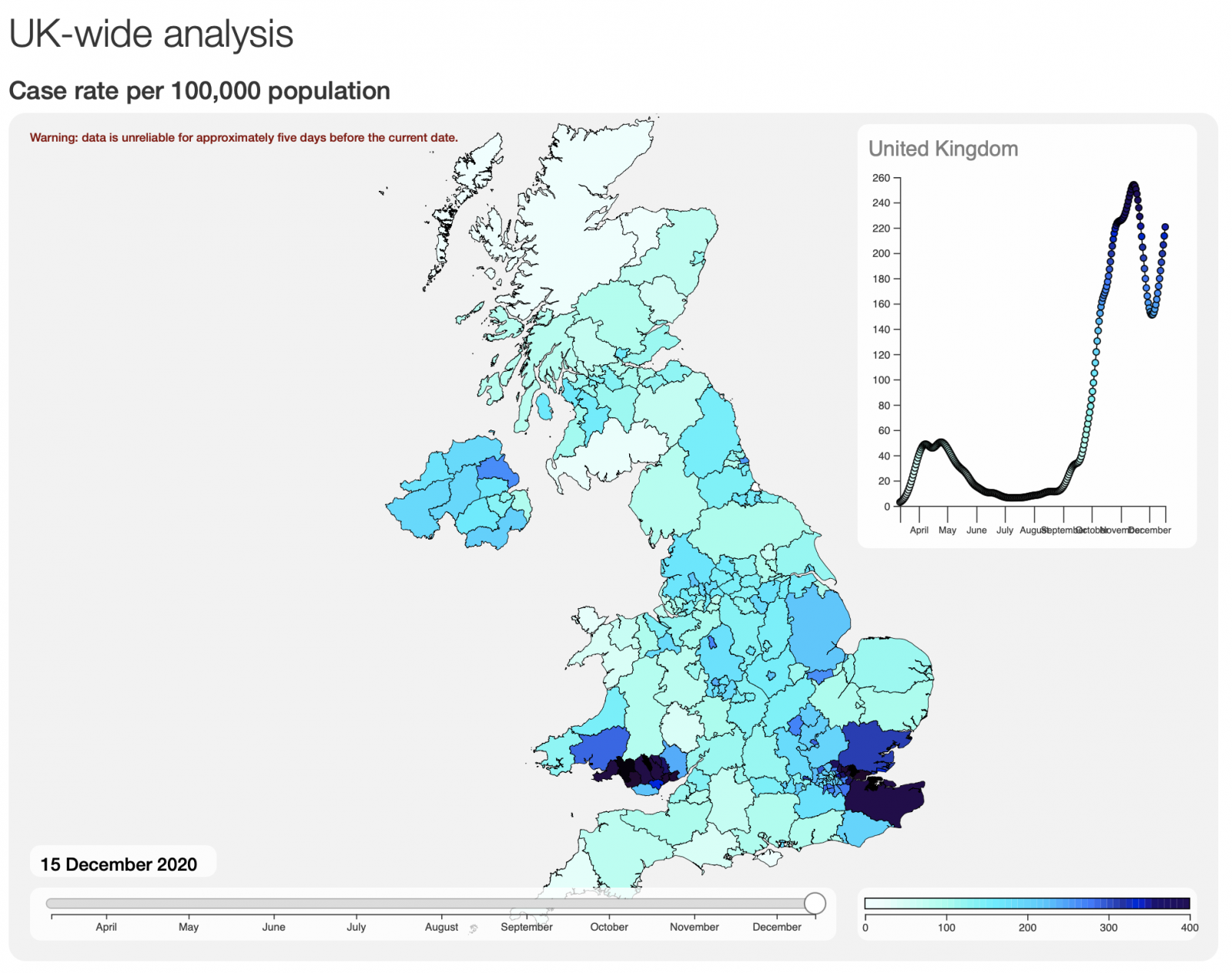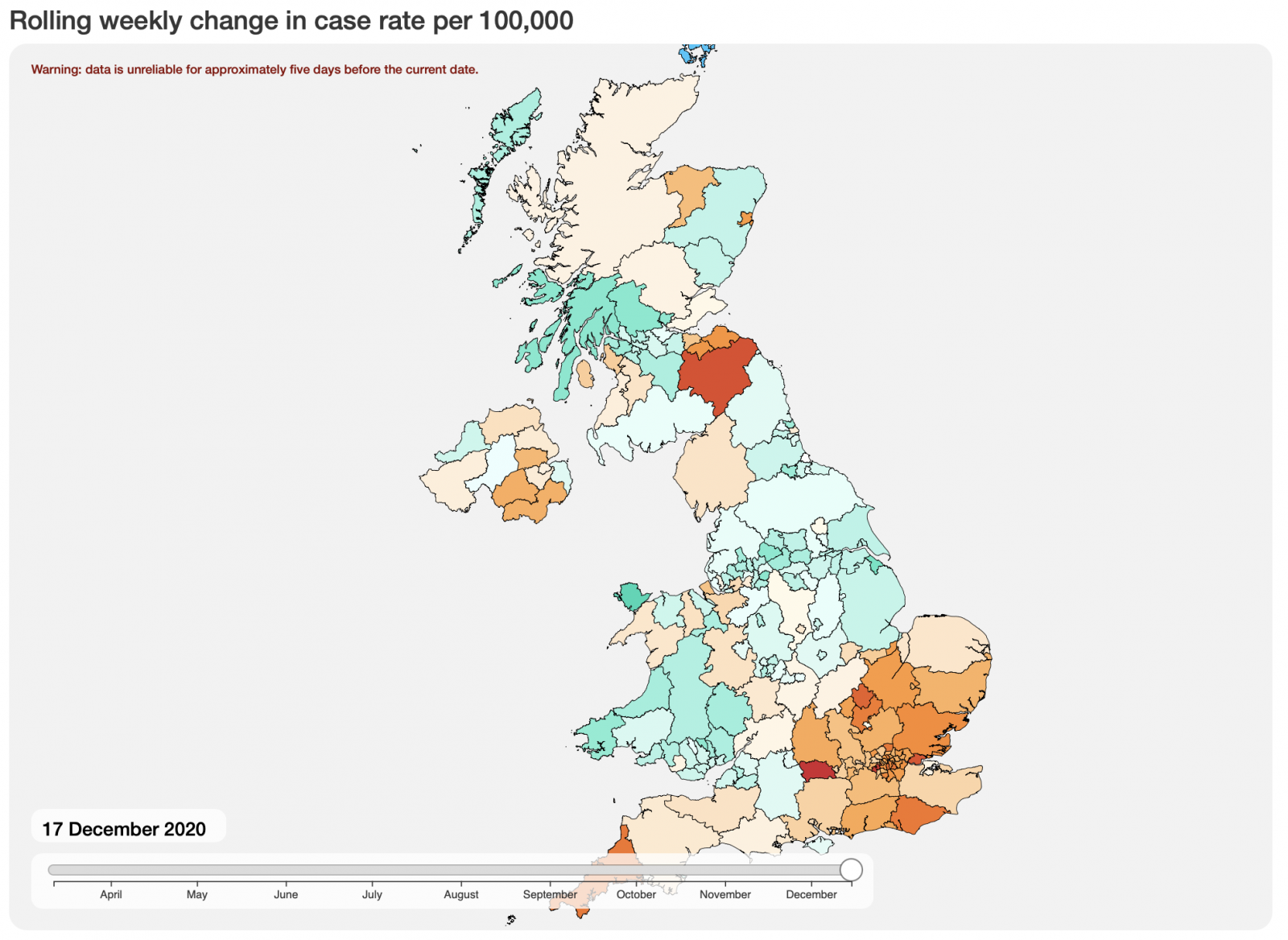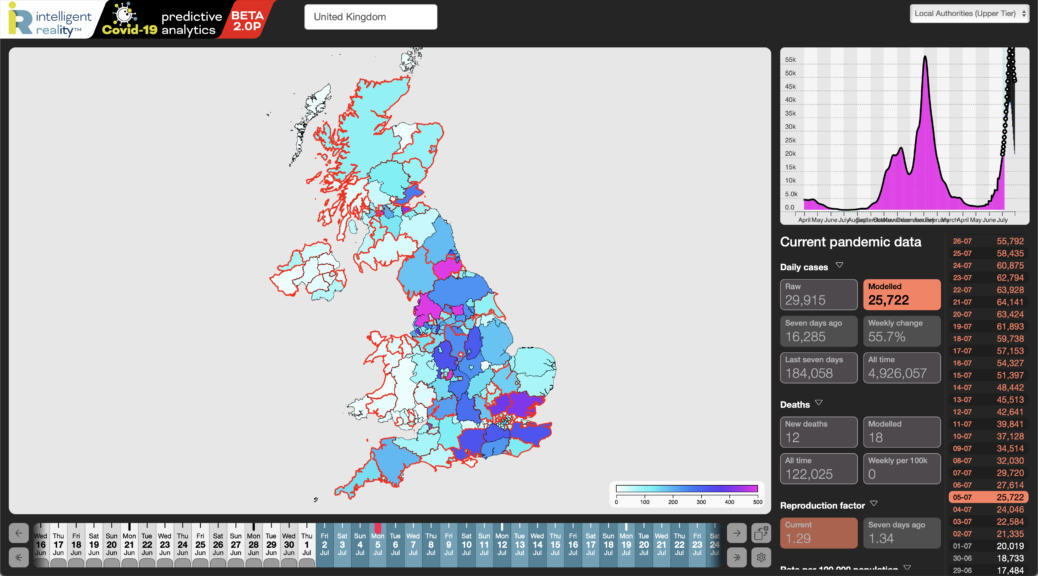
We’ve already shown that our forecasting system has been effective in providing advance warning of the current Third (or Fourth, depending on how you’re counting) wave of Covid-19 cases. With that wave now fully established, we’re looking again at our forecasts, the core data and our dynamic analyses of the pandemic, especially given the latest UK government policy.
With the UK’s rolling weekly case rate now at 238/100k population, up 60% on a week ago, and 40% of the way to the January national peak, we are not reassured. Looking at the behaviour of Chris Whitty’s eyebrows during government briefings, we suspect that neither is he. The current wave is so far unevenly distributed, with urban centres showing the biggest rises, in many cases well above the January peak with, as previously noted, an apparent strong association with those areas most engaged in the Euro 2020 competition. Given little restriction on movement, we believe that these centres of infection are in the process of seeding a ripple of infection across the rest of the country. Continue reading Third Wave Rising →
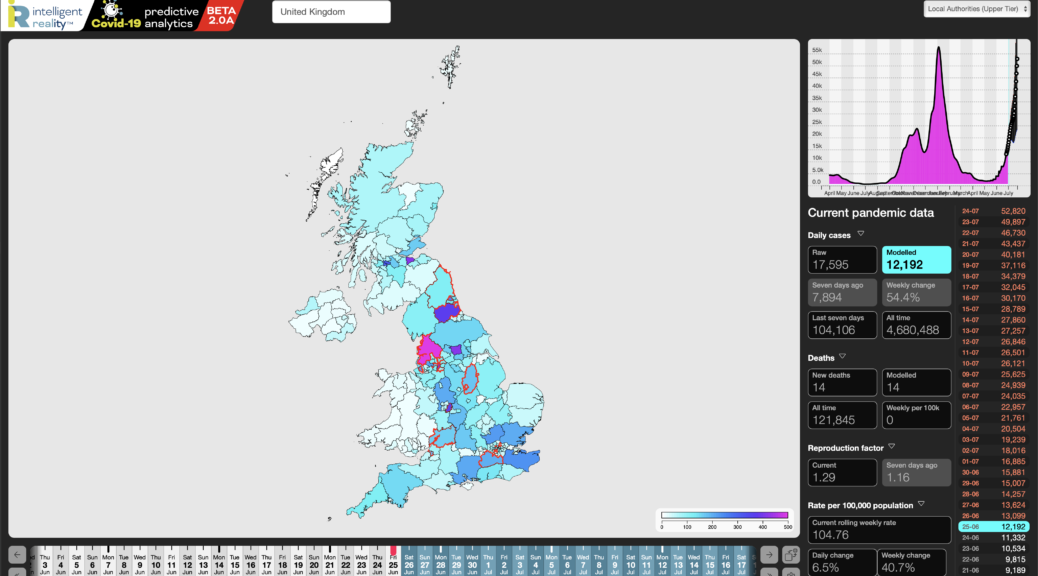
We’ve now moved from forecast to reality: the UK (and others) are in the throes of a new wave of infections, driven by the Delta variant of the Covid-19 virus. In the UK this has almost certainly been facilitated by both the general relaxation in lockdown and by events such as the G7 Summit and the Euro 2020 competition.
We have now introduced an alert system, which looks for outliers against the current trend in case numbers and pandemic force – this shows that cases and pandemic force spiked in Cornwall following G7 and, as of now, Glasgow (Hampden) just misses out on triggering our alert system and Brent (Wembley) and Edinburgh (the other major source of travelling Scotland fans) both now make our alert list (the red outlined local authorities in the header image). Continue reading The Impact of G7 and Euro 2020 →
As of 11 May, our Covid-19 forecasting system started consistently predicting a coming rise in cases for the UK, driven largely (as it turns out) by the Delta variant of the Covid-19 virus. In the UK this has almost certainly been facilitated by both the general relaxation in lockdown and by events such as the G7 Summit and the Euro 2020 competition. So far, so bad.
Other factors though are far more hopeful – we are seeing a very significant decoupling between case rates, hospital and ICU admissions and in particular death rates. This does demonstrate that the game has changed, and that we need to be rethinking our approach to managing our way out of the pandemic.
That said, government policy in many places still appears to be conditioned by the assumption that the vaccines effectively eliminate transmission, something that simply has not been demonstrated. Continue reading Conscious Uncoupling →
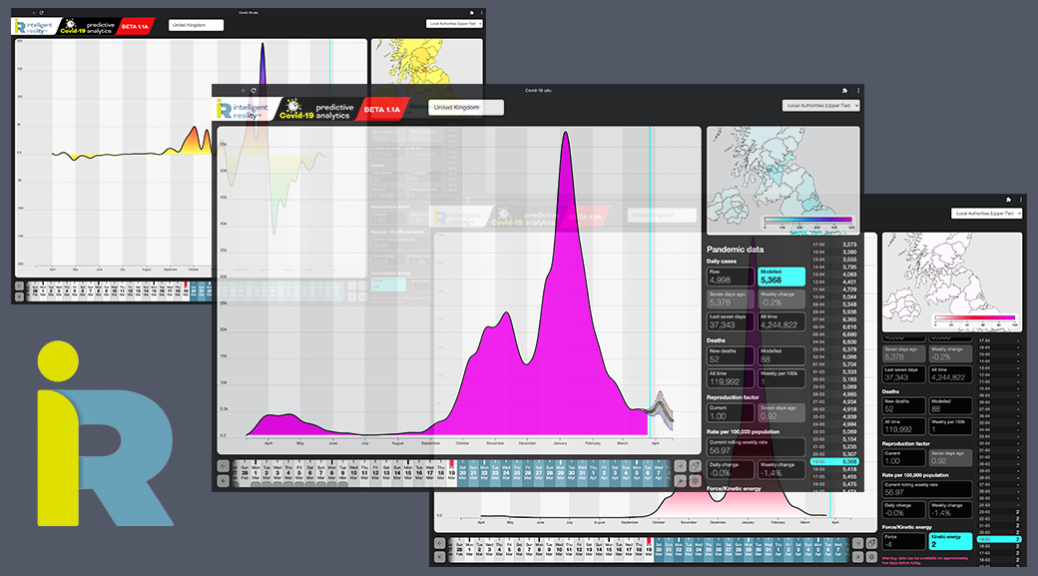
We all want a normal life. And politicians feel the pressure from their parties and constituents to restore normality as rapidly as possible. Unfortunately, there’s a dissonance between their reluctance to then take needful and decisive action at the earliest possible opportunity and the long-term consequences from the pandemic, where a tendency to treat the pandemic as transactional – something you can bargain with – has driven a patchwork, limited and often counterproductive response to the pandemic. Continue reading The (Long and Winding) Road to Normal →
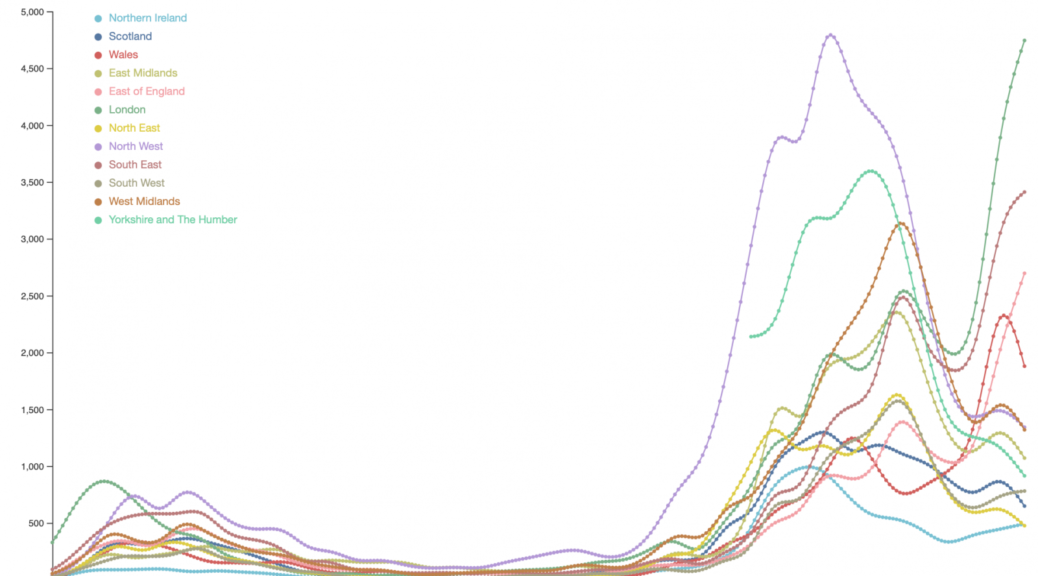
Throughout the pandemic, we’ve watched UK government Covid-19 policy-making as it appears to follow a drunkard’s walk between, on the one hand, an inherent laziness of response and a politically-influenced disinclination to act and, on the other, an attempt to claim some sort of causal relationship with the scientific and real world advice that they’re being given. The core mantra apparently is to do nothing until it’s too late, then blame any combination of scientists, the wider population and random acts of nature for the outcome.
Some parts of the UK are seeing increasing daily case numbers (first image) and a continuing increase in the rolling live case rate (the second image shows weekly case rate calculated per 100,000 population).
Continue reading Here We Go. Again. →
Two Worlds is an AI research consultancy and incubator, specialising in complex, adaptive systems. We create strategies, technologies and services that encompass advanced data discovery and fusion AI/Machine Learning, IoT networks, augmented and mixed reality systems.





